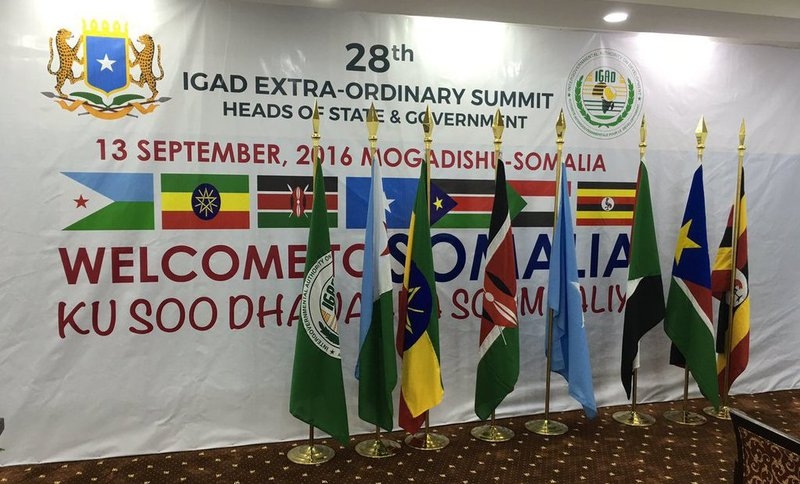Deputy president of the Banadir Journalists Union in Somalia and ZAM correspondent, Muno Gedi, tried to attend the historical peace summit in her country. But there were roadblocks and she was left sitting next to the radio with her hopes, fears and dreams.
There is change in the air. Mogadishu is quiet when I wake up on this Tuesday, without any noise or traffic in the streets. Today there will be no bomb attacks. Police are everywhere. Hotels and institutions are barricaded, on every corner there is a road block. I dress carefully, my heart singing. Today my country is back on the map of the world. There is a conference with five heads of state in my town, the first time in thirty years that anything of international importance happens here besides war.
The sky is blue, the weather is good. I walk to the conference center ready to celebrate with my fellow journalists. We will talk peace, an end to Al Shabaab, an end to corruption. We as journalists will start an honest dialogue with our government and parliamentarians. I hope our parliament will start giving us reports on their decisions and discussions, like in other countries. I hope for peaceful elections.
I hope, even, that Sudan’s Al-Bashir will be here. Yes, he is wanted by the International Criminal Court, but we need every big man in our region to help Somalia. Maybe it’s selfish but that is what I hope for. Two weeks ago there were another twelve people dead in my town. Two hotels across the presidential palace are ruins.
I walk, I stop at the road blocks, I show my ID, some of the soldiers want to search me. They are scared of bombs. It’s OK. We have to be careful. But then I am told I cannot go to the conference area. It is only for the big men, the government and accredited individuals. I try to get as close as possible, but I am turned back again and again. The army is too concerned about security. The first regional summit after decades of violence and conflict must not be a disaster. I understand.
Back home I listen to the radio. The speeches are exciting; the big men say everything I want to hear. The Somali army and AMISOM will protect us, will ensure elections. I have hopes that women will stop seeing their children murdered; that the AU and our army can make Al Shabaab disappear. That journalist will be free to work without fear. We are threatened a lot. The messages always come from unknowns. Fifty-nine of us have been killed since 1992. Many more wounded.
I dream that if we can end the violence, our refugees who live abroad can return. Many of them live in bad conditions; some have died in these foreign countries. I hope for a future where our young will not feel they have to leave anymore. But so far those are just dreams. Too many young people still don’t have the bare necessities to make a life in Somalia. Even our army soldiers often don’t get their salaries. They are discouraged and weak. I hope that the AU will help us, as the big men at the conference say it will.
I imagine the conference room, the discussions, the end statement. They speak in formal, diplomatic speak of the things that have happened and are still happening, not only here but also in South Sudan. They sound committed to fight Al Shabaab. They decide to work for correct electronic voting systems. I hope they are serious. The regional leaders and the AU must help to make our elections good.
Bashir is not here, after all, but his ambassador is. All five regional countries. I hope Somalia will not only be important to them today, that we will stay on the agenda.
Elections are all the more important because our present Somali leaders are all talk and no action. I dream of a new president and parliament. There should have been elections already, since our current government’s mandate ended on 10 September, but there is still no clear time line for the electoral process. I publish wherever I can that our government’s mandate is actually over, because many among our Somali people don’t know that. Maybe if we publish it often enough it will hurry the big men up a bit.


